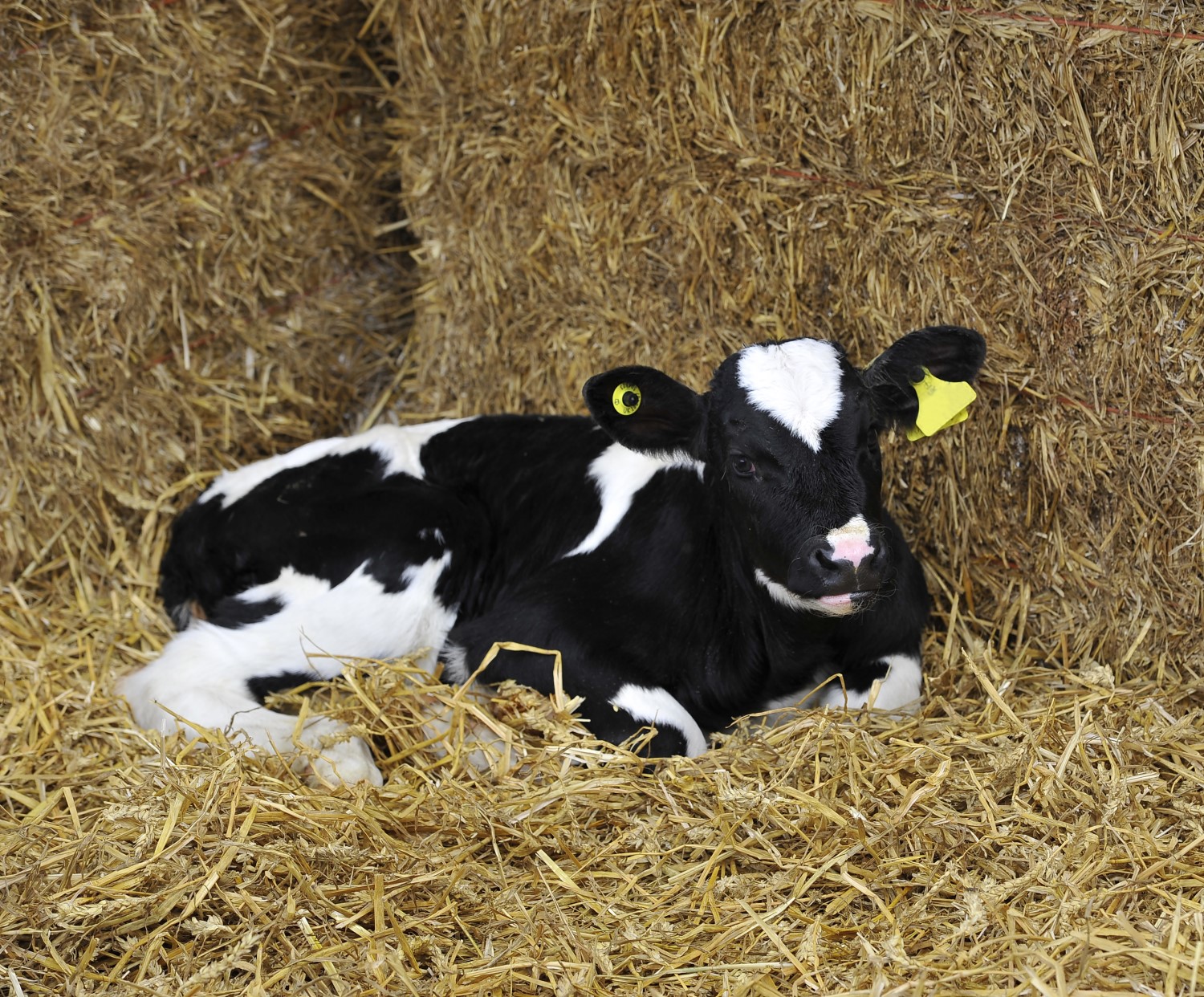Managing calf scours using test kits
Wednesday, 27 October 2021
Using a refractometer and calf scour test kits to manage calf scours has enabled Pembrokeshire dairy farmers Andrew and Judith Hughes to drop annual cases by 92% and reduce costs.
Andrew and Judith Hughes manage their herd of 250 all-year-round calving cows with their son, James, at Marlsbrough Farm in Haverfordwest. The farm rear replacement heifers and buy in bulls, supplying milk to First Milk on a Tesco contract.
In the 12-month period to August 2020, Marlsbrough reported 25 cases of calf scour. The main causal agent identified previously was cryptosporidium. In January 2020, the team began vaccinating cows against Rotavirus, Coronavirus and E. coli during the dry period to pass on protection to the calves. Calves were also treated with halofuginone, a coccidiostat used to prevent cryptosporidiosis.
Marlsbrough Farm is one of 500 farms selected by AHDB to take part in its HerdAdvance project, which aims to help Welsh dairy farmers lift profitability and performance by focusing on improved herd health management and disease control.
Through the HerdAdvance project, the farm was supplied a refractometer and scour test kits by their AHDB Animal Health Knowledge Exchange Manager, Lauren Arndt.
As a result of using the kits and working closely with vet Joan Phillips from Fenton Vets, management protocols around calving were changed. Calves were originally left on their mothers to suckle colostrum before being removed, but now they are taken from their mothers soon after calving before suckling, thus giving control over colostrum intake. Replacement heifer calves are given stored colostrum which is only taken from vaccinated cows and is checked for quality before storing.
A study in 2016 found the cost of failing to get good immunity transfer from colostrum to be around £55 for dairy calves, and £75 for beef calves (Raboisson et al., 2016). Failing to get immunity from colostrum means calves are 1.5x more likely to get scour, 1.8x more likely to get pneumonia, and 2x more likely to die, and investing time in improving colostrum management is often extremely worthwhile.
Calves are also now housed in group hutches which can be moved between batches.
Since August 2020, Judith has reported only two cases of scour. She has been checking any suspect cases with the scour test kits for Rotavirus, Coronavirus, E. coli and Cryptosporidium, and all have been negative. Using this information has enabled Judith to stop routine treatment with halofuginone, and so far, no new problems have occurred. Antibiotic usage has also reduced.
Judith said: “Since using the scour test kits, we now only give basic care to calves with negative results. It has avoided unnecessary use of antibiotics and crypto drenches and I will be using them more in the future.”
Lauren said: “Knowing what pathogens are present can inform your treatment and prevention protocol on farm and draw attention to areas for improvement. Using scour kits on farm will give you rapid results to target appropriate treatment to affected calves. The use of BRIX refractometers also supplied to HerdAdvance youngstock pathway farms can ensure adequate colostrum intake avoids failure of passive transfer.”
Rearing dairy heifer calves is the second-largest annual expense for dairy farms, accounting for about 20% of production costs. However, with the best management, they will repay the investment in rearing costs with higher milk production and a longer productive life.
Calf scour test kits can be used to find out which infectious agent is causing your calves to scour and is the first step in successful treatment or even prevention of calf scour. Having knowledge of what is causing the problem means your vet can advise which control measures should be targeted and can prescribe the most appropriate treatment.
Find out more about dairy calf management
Disease management in dairy calves
HerdAdvance is part of the five-year Dairy Improvement Programme, which is funded by the Welsh Government and the European Union.

Sectors:


